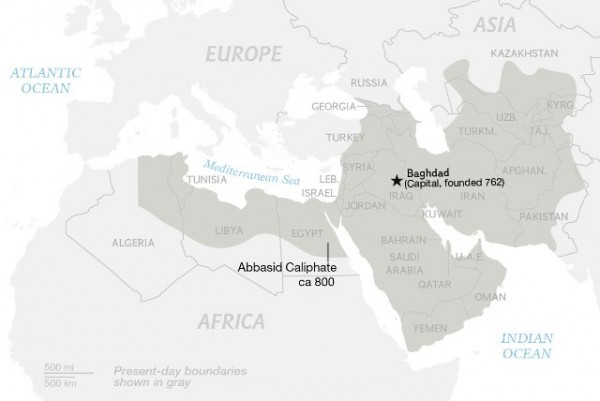
1- Early Caliphates The idea of a Sunni-dominated Islamic caliphate harkens back centuries to two empires: the Umayyad and Abbasid Caliphates. A caliphate is an Islamic state led by a religious and political leader known as a caliph. Sunnis believe their leaders should be elected from among the political successors of the Prophet Muhammad, the nonhereditary elite known as caliphs. The Shiites, however, believe their leaders should come from the direct family line of Muhammad. That schism remains to this day and is a defining element of the sectarian violence in Iraq.
ishtartv.com-
National Geographic
Sunni
Arab militants from the al Qaeda splinter group known as the Islamic State of
Iraq and Syria, or ISIS (also known as the Islamic State of Iraq and the
Levant, or ISIL), have gained control of vast tracts of land along the Tigris
and Euphrates Rivers in Iraq, and are pushing south toward Baghdad. It’s all
part of a wider aim to establish an Islamic caliphate in Syria and Iraq
and—eventually—farther away in Asia and Africa. Over the centuries, however,
the region once known as the cradle of civilization has seen significant
changes. A seventh-century split within Islam itself between Sunni and Shiite
would only grow wider as the centuries wore on and the region known as Iraq was
traded between great powers.
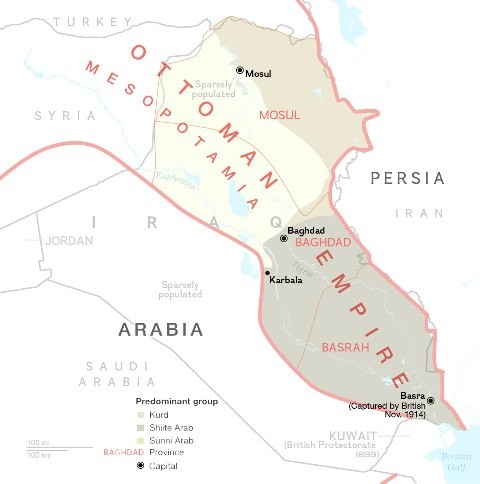
2- The Ottoman Empire At the height of its expansion in the 16th and 17th centuries, the Ottoman Empire—whose leadership was Sunni and based in what is now Turkey—covered vast tracts of land in southern Europe, Asia, and North Africa. The empire allowed for multiple languages and religions and divided the area that is now Iraq into three provinces. The Kurds settled in Mosul, the Shiites in Basra, and the Sunnis in Baghdad. Like the British who followed them, the Ottomans sought to maintain the lands that would come to be known as Iraq as a predominantly Sunni-controlled region.
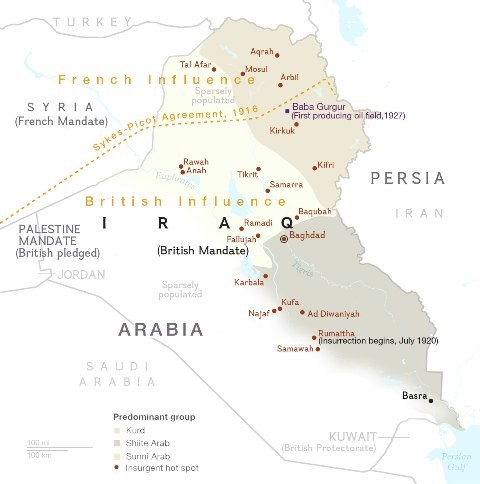
3- World War I Aftermath World War I saw the end of several imperial powers, including the Ottoman Empire. The newly formed League of Nations, tasked with maintaining world peace, carved up the former Ottoman Empire and unified the three provinces under British rule, essentially demarcating the modern boundaries of Iraq. Displeased with this plan, the Shiites, Sunnis, and Kurds united for the first time to revolt against British colonial occupation, but they were unsuccessful in gaining full independence until 1932. In the decades that followed, Sunnis held political prominence through the monarchy and political leadership positions, including Saddam Hussein’s presidency beginning in 1979.
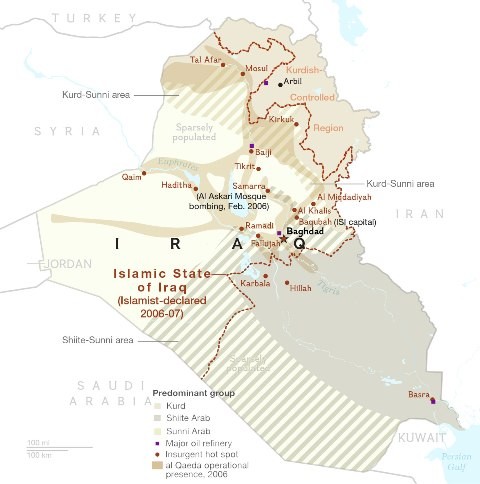
4- Toppling of Saddam Hussein In 2003 the United States invaded Iraq and toppled the decades-long regime of Saddam Hussein. The violent insurgency that followed resulted in more than 4,000 U.S. deaths and hundreds of thousands of Iraqi casualties. By 2006 the insurgency appeared to have devolved into a civil war between Sunni and Shiite factions. That same year, the election of a new prime minister, Nouri al-Maliki, who is Shiite, led to an unusual period of Shiite political dominance in Iraq and to claims of disenfranchisement by Sunnis, one key factor in the violent opposition to his leadership today. The year 2006 also witnessed the birth of the Islamic State of Iraq (ISI) as both a Sunni group (a renaming of al Qaeda in Iraq, and a precursor to ISIS) and as an Islamist-declared state in western Iraq.
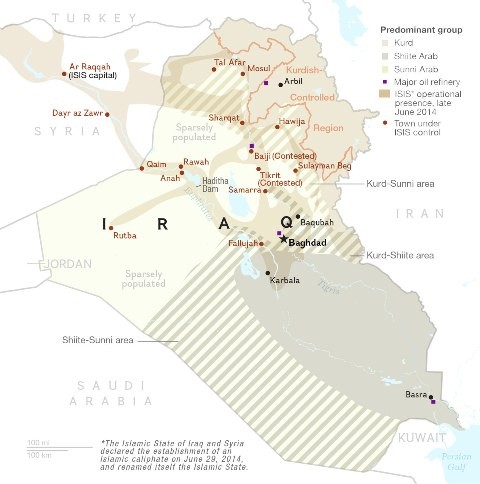
5- The Rise of ISIS Earlier this year, an al Qaeda splinter group based in Syria swept into Iraq with the aim of establishing an Islamic state in both countries, which—if successful—would effectively erase the borders imposed by the West in the wake of WWI. In recent weeks, this Sunni Arab militia, called ISIS, has seized significant resources and conducted mass executions in its dramatic push toward Baghdad. While they have faced little opposition in the Sunni-dominated northwest, the encroachment of ISIS into Shiite-dominated southern territories is expected to result in significant bloodshed.
|